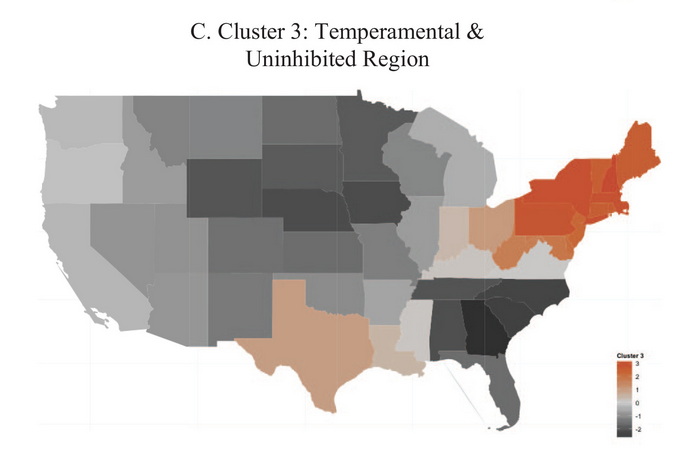Advice for navigating transitions in work, life, and relationships from Dr. Loretta L.C. Brady and her team members at BDS Insight.

Send in your confidential reader question. Just click here.
Dear Dr. Brady:
In my experience working in manufacturing as a regular blue-collar guy I’ve run into some pretty strange characters. Some of the strangest I’ve come acro ss of late are those who are approaching retirement age.
ss of late are those who are approaching retirement age.
From what little I’ve read. young people smoking pot and then continuing to do so on a regular basis for decades can develop strange paranoia and psychosis. I’m curious what research says about what the long-term effects of marijuana on the brain are? They seem unstable to me, and sometimes I wonder just how much of their behavior could be linked to the pot – this isn’t just one guy.
The common denominator is that they talk about enjoying weed pretty regularly. Could there be anything to my theory?
Somebody Save Me

Dear Somebody Save Me:
Thanks “Somebody Save Me” for sending in your question. I am going to blame my delayed Clarity in Chaos this month on the mountain of psychopharmacology research articles I had to pour through to give you a good response. Pretend you don’t know the date on the calendar corresponding perfectly with final exams, Mother’s Day, and school vacation week, OK?
All right, so what I am hearing is “Do pot-smoking kids turn into grumpy old men? And if so, was it because of the pot?” This question is tricky for a few reasons because we have to consider not only the effects of marijuana but we also have to consider cohort, aging, and regional personality differences. Let’s consider a few alternate explanations before exploring marijuana (that’s what she said…).
Cohort-effects
You mention that these colleagues are nearing retirement. This puts them as being college-aged in the late 1960s and early 1970s. Why does this matter? Well, the first national survey of marijuana use occurred by telephone survey of college students in 1967. Back then, only 5 percent of respondents indicated any use in their lifetime. Jump ahead 2 years, to 1969, and 22 percent of respondents to a similar survey that year indicated having used marijuana. So, while you point out that the people you are working with seem to be “strange sorts,” this might have more to do with who they always have been rather than who they turned into.

In the late 1960s and early 1970s if you were regularly smoking pot you were probably someone who was comfortable operating outside the mainstream. On the other hand, If you were someone college or high school aged in the late 1970s and smoking marijuana you were part of the majority, since in polls taken in the late 1970s, 51 percent of college students polled reported marijuana use in the prior year.
Understanding the historical trend and context operating when someone began regularly using marijuana can help you understand the role that their individual personality traits may play on how they are today, and help you appreciate what impact drug use may or may not have had.
Personality and Aging
In studies of personality and aging, researchers agree that certain traits change over time. In general, as we age we tend to get lower in our “agreeableness” and lower in our “openness to experience,” while getting slightly higher in our conscientiousness. This means that for the folks you work with they are probably less likely to compromise, less interested in new ideas or experiences, and more reliable than when they were in their 20s. These qualities may result in someone being more “set in their ways” and if those ways were on the fringes to begin with then you likely are seeing the settling in that can happen with age.
Regional Personality Differences

Did you know folks living in New Hampshire tend to be “temperamental and uninhibited”? According to psychologist Peter Rentfrow, who has run a series of studies over the past decade, there are regional personality styles throughout the U.S. Maybe your colleagues are from the region, and if you are not from the same region they are you might be picking up on these qualities.
Marijuana properties
OK, as much as we have to consider cohort, aging, and personality change and differences, we can’t ignore the specific properties and impacts of marijuana itself. Does pot make you a conspiracy theorist? Well, use can lead to paranoia, and some people and some strains of pot can increase the likelihood of suspiciousness. Why? There are a number of cannabinoid receptors throughout the brain and body. CB1 and CB2 receptors are the best known, and CB1 is primarily activated by THC, the chemical compound in marijuana. In the brain region known as the amygdala, THC creates activity in the CB1 receptors. The amygdala is the part of the brain that responds and scans for threat. When this region is more active there is more anxiety and, combined with other effects, can lead to suspiciousness.

Long-term use can increase these effects, and in some research, greater anxiety has been found in frequent users. This may be because the cannabinoid system once activated creates additional receptors. More use, more receptors; more receptors, more sensitivity to activation, which leads to greater anxiety for some long-term frequent users.
Another finding from research concerns the relationship between early use (adolescence) and greater risk of developing psychosis. There is clear research that earlier use increases risk for serious mental illnesses such as schizophrenia and schizoaffective disorder. It may be that for some people there is a predisposition to psychotic symptoms. When marijuana use activates CB1 receptors this may be a catalyst for psychotic symptoms.
The research suggests this isn’t just a matter of self-medication leading to use, but rather that those who use are more likely to develop these types of symptoms. In those users who ultimately develop psychotic symptoms, they do so 2.5 years earlier than those who didn’t use marijuana.
 So, does using marijuana make you paranoid? It may, and long term daily use can increase these effects, but it isn’t a straight line and a lot has to do with predispositions people may have to these effects. Research is clear: Avoiding marijuana use during adolescence is a wise choice since this time period seems to be a particularly sensitive one for certain brain regions that are more reactive to the effects of marijuana, and more vulnerable to those reactions.
So, does using marijuana make you paranoid? It may, and long term daily use can increase these effects, but it isn’t a straight line and a lot has to do with predispositions people may have to these effects. Research is clear: Avoiding marijuana use during adolescence is a wise choice since this time period seems to be a particularly sensitive one for certain brain regions that are more reactive to the effects of marijuana, and more vulnerable to those reactions.
I hope you are able to enjoy the “out there” qualities of your co-workers. I also hope there are some safety checks that limit dangerous equipment access for those who may be under the influence. There is much research to be done on positive and negative impacts of marijuana but marijuana’s impact on reaction time, motor dexterity, and memory are pretty conclusive.
All right, it’s your turn. I hope you’ll join me in seeking clarity for the shifts you are navigating.
 Readers of Manchester Ink Link seek relevant, local, and pragmatic reporting. Editor Carol Robidoux provides layered reports that allow all of us to feel not only part of the story, but partners in resolution. My hope is that this column will serve as a compass for readers seeking clarity in the chaos of their businesses, personal lives, or relationships. From time to time we will have guest columnists offer their insight on a challenge. This information is simply opinion, but I hope you will share your stories so that others can gain clarity for themselves. Questions are powerful. We hope you will share yours here.
Readers of Manchester Ink Link seek relevant, local, and pragmatic reporting. Editor Carol Robidoux provides layered reports that allow all of us to feel not only part of the story, but partners in resolution. My hope is that this column will serve as a compass for readers seeking clarity in the chaos of their businesses, personal lives, or relationships. From time to time we will have guest columnists offer their insight on a challenge. This information is simply opinion, but I hope you will share your stories so that others can gain clarity for themselves. Questions are powerful. We hope you will share yours here.

Loretta L.C. Brady owns BDS Insight a culture, crisis, and conflict management firm in Manchester. She is an Associate Professor of Psychology at Saint Anselm College. She, her husband Brian Brady, and their 5 children live and work in Manchester.
 The opinions or views expressed in this column are not intended to treat or diagnose; nor are they meant to replace the treatment and care that you may be receiving from a licensed professional, physician or mental health professional. This column, its author, the newspaper and publisher are not responsible for the outcome or results of following any advice in any given situation. You, and only you, are completely responsible for your actions. Dr. Loretta L.C. Brady, clinical and organizational psychologist, offers her and guest columnist opinions on a variety of current event and reader submitted subjects. She and they are expressing personal and professional opinions and views. Manchester Ink Link and Dr. Loretta L.C. Brady are not responsible for the outcome or results of following the advice of this column in any given situation.
The opinions or views expressed in this column are not intended to treat or diagnose; nor are they meant to replace the treatment and care that you may be receiving from a licensed professional, physician or mental health professional. This column, its author, the newspaper and publisher are not responsible for the outcome or results of following any advice in any given situation. You, and only you, are completely responsible for your actions. Dr. Loretta L.C. Brady, clinical and organizational psychologist, offers her and guest columnist opinions on a variety of current event and reader submitted subjects. She and they are expressing personal and professional opinions and views. Manchester Ink Link and Dr. Loretta L.C. Brady are not responsible for the outcome or results of following the advice of this column in any given situation.
 You’re one click away! Sign up for our free eNewsletter and never miss another thing
You’re one click away! Sign up for our free eNewsletter and never miss another thing







